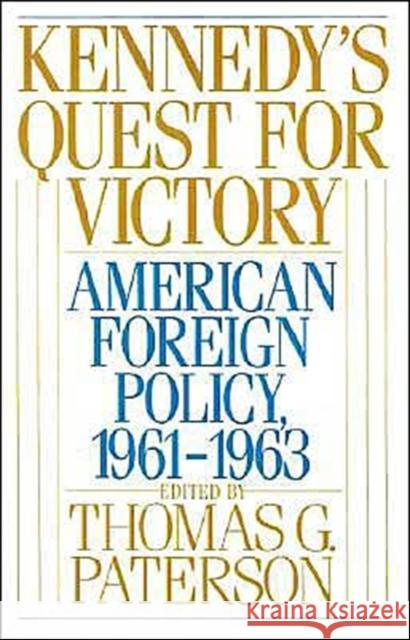Kennedy's Quest for Victory: American Foreign Policy, 1961-1963 » książka
Kennedy's Quest for Victory: American Foreign Policy, 1961-1963
ISBN-13: 9780195045840 / Angielski / Miękka / 1989 / 432 str.
The first major reassessment of John F. Kennedy's foreign policy since his death, this volume of original essays compels new thinking about the 1960s. Basing their analysis on extensive research in archival documents and oral histories, twelve accomplished historians explore the primary foreign policy assumptions and objectives of Kennedy and his advisers. The contributors examine the Cold War, global crisis, domestic politics, decision-making, personality and style, and historical lessons in shaping Kennedy's diplomacy.
This provocative volume explores such key issues as the Atlantic alliance, nuclear arms, United States economic hegemony, the Cuban missile crisis and the covert war against Fidel Castro, Third World neutralism, the Peace Corps, and the Vietnam War. The contributors also examine the Kennedy Administration's policies towards Latin America, Canada, the Middle East, South Asia, China, and Africa, and assess the costs and consequences of Kennedy's record. The Kennedy legacy included a deepening war in Vietnam, an accelerated nuclear arms race, excessive activism in the Third World, greater factionalism in the Atlantic community, and a globalism of overcommitment.
These well-researched essays challenge us to reckon with a past that has not always matched the selfless and self-satisfying image Americans have of their foreign policy and of Kennedy as their young, fallen hero who never had a chance to fulfill his goals. Identifying arrogance, ignorance, impatience, and exaggerations of the Communist threat as the factors that actually denied Kennedy the victory he craved, this study reveals that he had his chance--and he failed.











